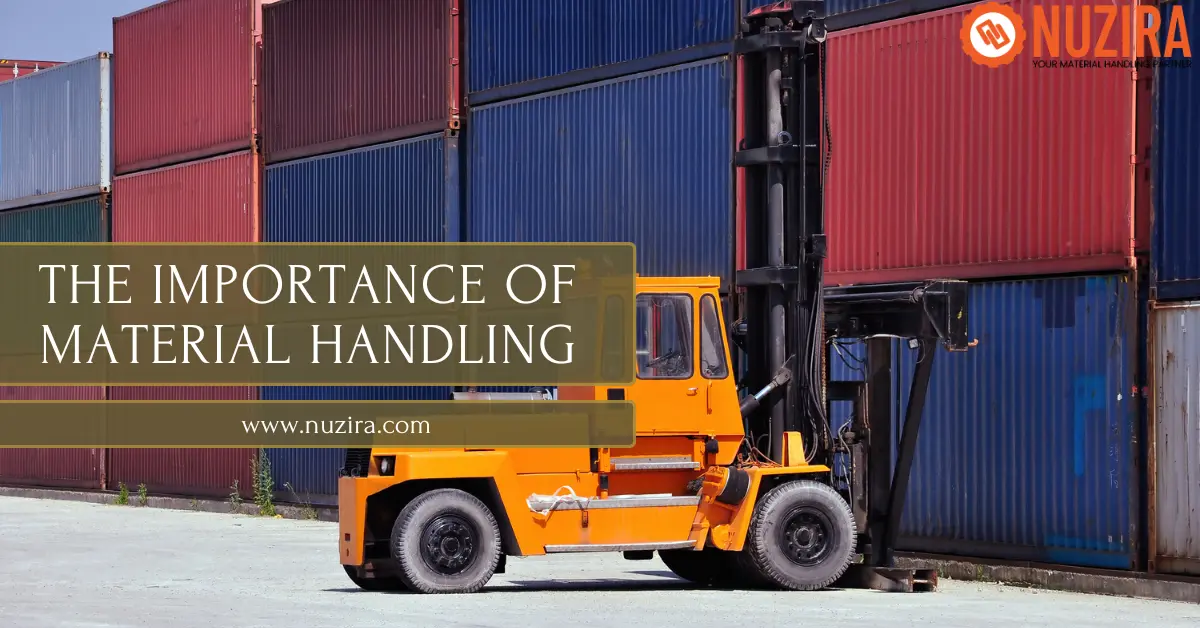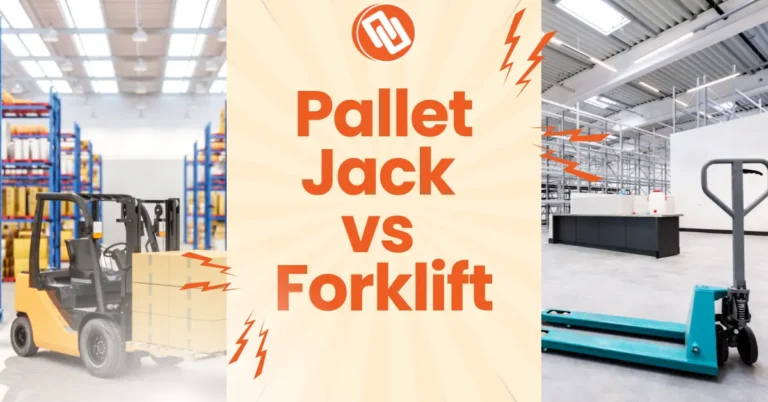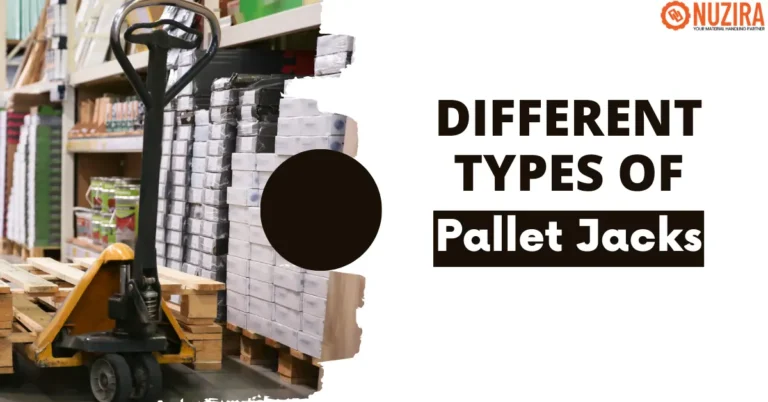The Importance of Material Handling
Material handling is the backbone of every industry that deals with physical goods. Whether in manufacturing, warehousing, distribution, or retail, the way materials are moved, stored, and managed has a direct impact on productivity, safety, and profitability. Far from being just about transporting items from point A to point B, material handling involves a combination of equipment, processes, and human effort that ensures smooth business operations. Understanding the importance of material handling allows companies to minimize waste, streamline workflows, and maximize efficiency.
If you are unfamiliar with the core concept, you can start by learning the basics through our guide on what is material handling and its benefits. Once the fundamentals are clear, it becomes easier to see why this function plays such a critical role across industries.
Why Material Handling Matters
The significance of material handling lies in its ability to optimize the movement of goods across the supply chain. A well-structured system eliminates unnecessary steps, reduces operational costs, and ensures that the right product reaches the right place at the right time. Without proper material handling practices, businesses face bottlenecks, safety hazards, and delays that directly affect customer satisfaction and profitability.
From small warehouses to large-scale manufacturing plants, effective handling creates a foundation for:
- Smooth workflow efficiency
- Worker safety and ergonomics
- Reduced product damage and losses
- Faster turnaround and delivery times
Material handling is not just an operational necessity—it’s a strategic advantage.
Connecting Efficiency to Business Growth
When companies invest in structured material handling systems, they don’t just improve internal operations; they also enhance their ability to scale. Efficient handling lowers costs per unit, increases production speed, and strengthens supply chain reliability. These improvements ultimately translate into greater competitiveness in the marketplace.
Imagine two warehouses: one relies on outdated, manual methods, while the other uses optimized handling solutions. The second will consistently process orders faster, with fewer errors and accidents, giving it a strong edge in customer satisfaction and long-term growth.
Key Benefits of Material Handling
1. Improved Efficiency and Productivity
One of the most critical benefits of material handling is its ability to streamline operations. By implementing the right equipment and processes, companies reduce the time it takes to move raw materials, components, or finished goods. Automated conveyors, forklifts, and storage systems can handle repetitive tasks faster and with fewer errors than manual methods. This efficiency frees up workers to focus on more skilled tasks and helps businesses process larger volumes without sacrificing accuracy.
2. Enhanced Workplace Safety
Safety is a cornerstone of material handling. Improper lifting, unorganized storage, and inefficient movement often lead to accidents and injuries. By adopting structured handling practices, such as using mechanical aids or ergonomic tools, businesses protect their employees from unnecessary strain. Beyond physical well-being, a safe workplace reduces downtime, lowers insurance costs, and fosters higher morale among employees who feel valued and protected.
3. Reduced Product Damage and Waste
When goods are handled incorrectly, the risks of breakage, spoilage, or loss increase significantly. Proper handling systems are designed to minimize contact, cushion fragile items, and maintain optimal storage conditions. This not only preserves the quality of products but also reduces unnecessary waste. In industries like food, pharmaceuticals, or electronics, preventing damage is directly tied to maintaining compliance and customer trust.
4. Cost Reduction and Profitability
Efficient material handling translates into financial savings. Streamlined processes reduce labor costs, cut down on unnecessary inventory movements, and minimize wasted time. Additionally, by reducing accidents and product losses, companies avoid the hidden expenses that often go unnoticed. Over time, these savings contribute to healthier profit margins and enable reinvestment into further growth and innovation.
5. Faster Delivery and Customer Satisfaction
In today’s fast-paced market, speed is often a deciding factor in customer satisfaction. Optimized material handling allows businesses to process and ship orders more quickly. Shorter lead times strengthen customer loyalty and build a reputation for reliability. Whether fulfilling B2B contracts or serving retail consumers, businesses that prioritize handling gain a distinct competitive edge in customer experience.
Conclusion
Material handling is far more than a background process—it is the foundation that supports efficiency, safety, and profitability across industries. From streamlining operations and reducing workplace accidents to cutting costs and ensuring timely delivery, the importance of material handling cannot be overstated. Businesses that invest in well-designed systems and practices not only improve their day-to-day workflow but also position themselves for long-term growth and competitiveness.
As industries continue to evolve with automation, smart technology, and sustainable practices, the role of material handling will only become more significant. Companies that prioritize this area today will be better prepared for the demands of tomorrow’s market.
If you want to learn more about handling solutions and how they can benefit your business, we invite you to explore more insights on our website. Visit us today and discover how the right approach to material handling can transform your operations.







